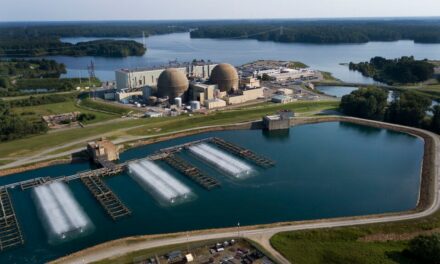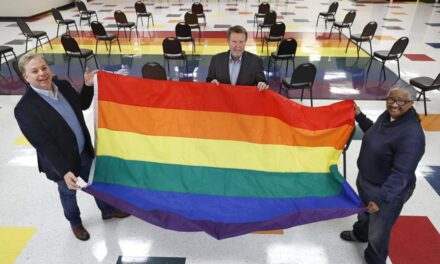President Joe Biden on Monday signed into law a bill that transfers the land that includes the old RFK Stadium from the federal government to city control, the next step to potentially pave the way for the NFL’s Washington Commanders to return to the nation’s capital.
Giving the District of Columbia control of the land for the next 99 years allows for the decaying husk of the old stadium to be torn down and the site redeveloped for any number of things. One of the possibilities is a football stadium and surrounding entertainment options at the franchise’s former home.
Owners Josh Harris, Mitch Rales and Mark Ein and Mayor Muriel Bowser stood behind Biden at the Resolute Desk in the Oval Office when he signed the D.C. Robert F. Kennedy Memorial Stadium Campus Revitalization Act. The Commanders in a statement said it was a big win for the city and its residents.
“Washington can finally move forward on a new vision for the RFK site,” they said. “We look forward to being a part of that conversation as we evaluate a future home for the Washington Commanders.”
Bowser called this moment “the results of years of tireless and strategic advocacy, extraordinary collaboration and bipartisan leadership.”
“It is a good day for D.C. when we finally have control of our own destiny at the RFK campus,” Bowser said. “We are ready and optimistic about unlocking the full potential of this space, and with more than 170 acres of land we can do it all — deliver housing, economic opportunity, green space, recreation, sports and more.”
Playing in Washington again is no sure thing. The Commanders are also considering other places in the district, Maryland and Virginia to build a stadium in the coming years.
Their lease at Northwest Stadium in Landover, Maryland, runs through 2027. Harris called 2030 a “reasonable target” for a new stadium.
The team played at RFK Stadium, 2 miles (3.22 kilometers) east of the Capitol, from 1961-96 before moving to Maryland. Harris and several co-owners, including Rales and Ein, grew up as Washington football fans during that era, which included the glory days of three Super Bowl championships from 1982-91.









